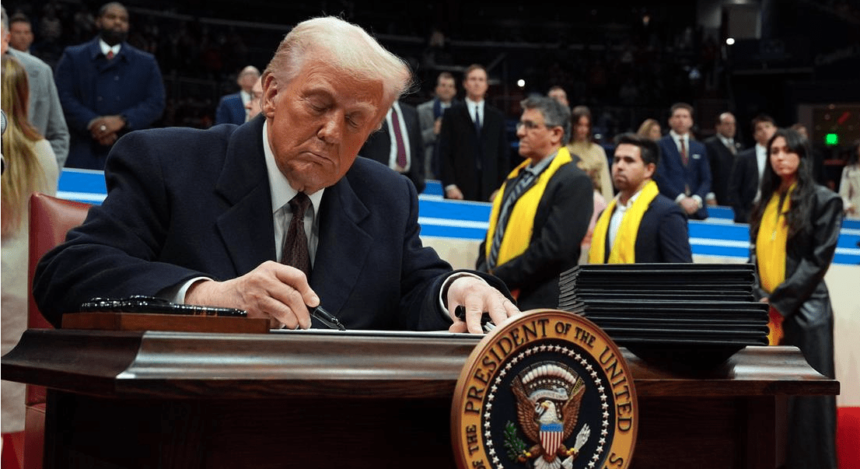The US embassy in Pretoria has confirmed that projects funded through the President’s Emergency Plan for Aids Relief (Pepfar) are exempt from President Donald Trump’s executive order banning foreign aid to South Africa. This exemption allows for the restart of Pepfar projects under a 90-day limited waiver, which will expire in April for approved activities.
Projects receiving waiver letters have been instructed to resubmit budgets for limited activities that qualify for waivers. The exemption falls under section 3(b) of the executive order, which allows agencies to provide foreign aid deemed necessary or appropriate.
Pepfar has committed over $439 million to South Africa for the current financial year, a significant portion of the health department’s HIV budget. These funds are channeled through USAid and the Centers for Disease Control to support HIV projects in alignment with the health department’s goals.
However, uncertainty looms over the future of waiver-approved projects once the 90-day period expires. Trump’s ideologies, which include anti-abortion stances and opposition to diversity and inclusion programs, could impact the continuation of these projects.
Mitchell Warren from Avac highlights the chaos and uncertainty surrounding the operations of Pepfar projects in light of the waiver restrictions. The waiver dictates which activities qualify for funding, such as HIV testing, care, and treatment services for various population groups. Notably, anti-HIV preventive medication like PrEP for non-pregnant individuals is not covered under the waiver.
Pepfar’s support for global PrEP users, including those in South Africa, raises concerns about access to essential medications. The organization’s commitment to providing anti-HIV shots and prevention injections could also be affected by the waiver restrictions.
As stakeholders navigate the implications of the waiver on Pepfar projects, the future of HIV programs in South Africa remains uncertain. The impact of Trump’s executive order on foreign aid to the country underscores the challenges faced by health organizations in delivering critical services to vulnerable populations. The new lenacapavir jab has shown promising results in lowering someone’s chances of contracting HIV through sex to virtually zero. Gilead Sciences, the maker of lenacapavir, has recently applied to register the jab for PrEP (pre-exposure prophylaxis) use through the EU Medicines for All procedure. South Africa’s medicine regulator, Sahpra, is part of the registration process and will use the review results to register the medication in the country.
However, amidst these advancements, Pepfar-sponsored PrEP and other HIV prevention efforts are currently on hold. The recent Lancet editorial highlighted that almost all HIV prevention programs under Pepfar, except for mother-to-child transmission prevention, are halted. This includes programs targeting key populations, adolescent girls, voluntary male medical circumcision, and support for vulnerable children. The halt also extends to population-based HIV surveys and implementation science projects in South Africa.
The impact of these hold orders has led to the closure or scaling down of clinics providing HIV treatment and prevention services in South Africa. The lack of a viable contingency plan by the health department raises concerns about the continuity of services if the Trump administration decides to shut down Pepfar. The uncertainty and instability caused by these actions create a conducive environment for the virus to thrive, ultimately benefiting the virus itself.
In light of these developments, it is crucial for stakeholders to navigate the challenges and uncertainties in the HIV response effectively. The story will continue to evolve as more information becomes available, and it is essential to stay informed through reliable sources like the Bhekisisa Centre for Health Journalism. Stay updated by subscribing to their newsletter for the latest updates on health-related issues.








